
SBPC is committed to exposing the effects of student debt on communities of color and showing how predatory practices in the market exacerbate existing racial and economic disparities. Through innovative advocacy and the novel application of legal tools, the SBPC is working to address discrimination in the market and demonstrate how protecting borrowers is critical to advancing racial equity and economic justice.
Exposing the Disparate Effects of Student Debt
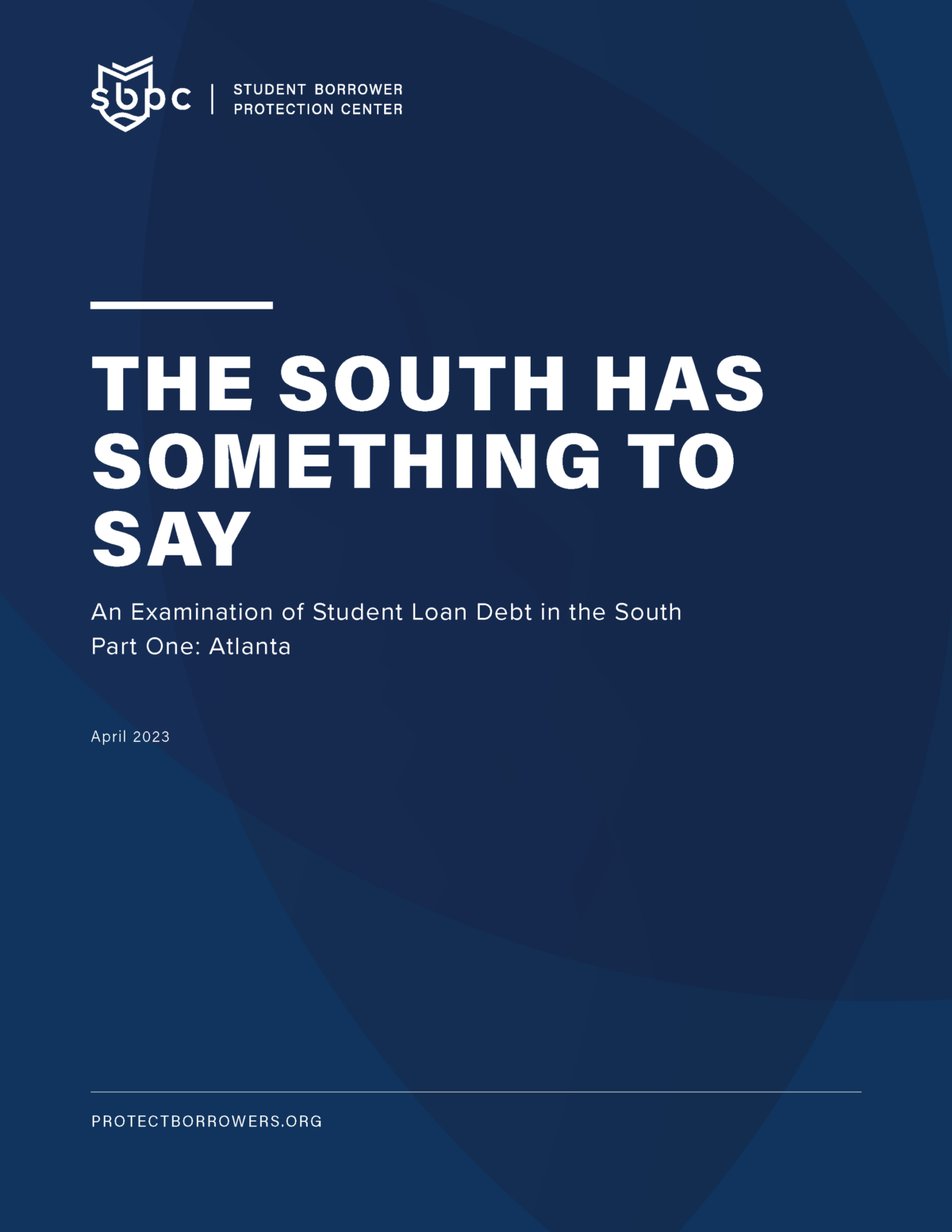
Student Debt in the South: Atlanta
This publication is part of a new research series, Student Debt in the South, which aims to study the disparate effects of student debt in metropolitan areas and rural communities across the southern United States. To kick off the series, this report gives the first in-depth look at how student debt burdens in majority-Black neighborhoods across Atlanta have grown faster than burdens in other neighborhoods throughout the city. The findings underscore the importance, particularly for Black borrowers, of debt relief.
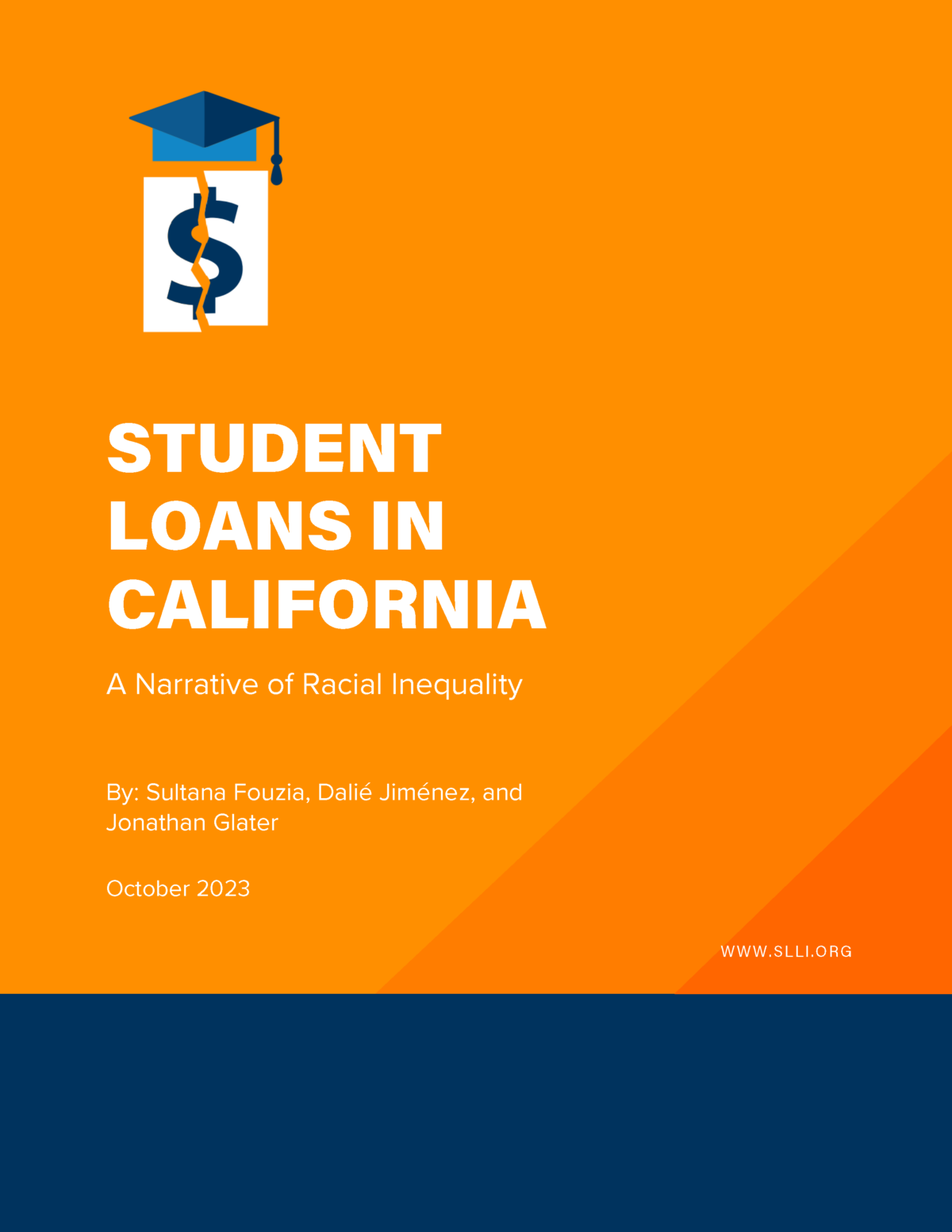
Student Loans in California: A Narrative of Racial Inequality
This research examines the overall burden posed by student debt and the burdens specifically shouldered by borrowers in majority-Latino/a communities in California.
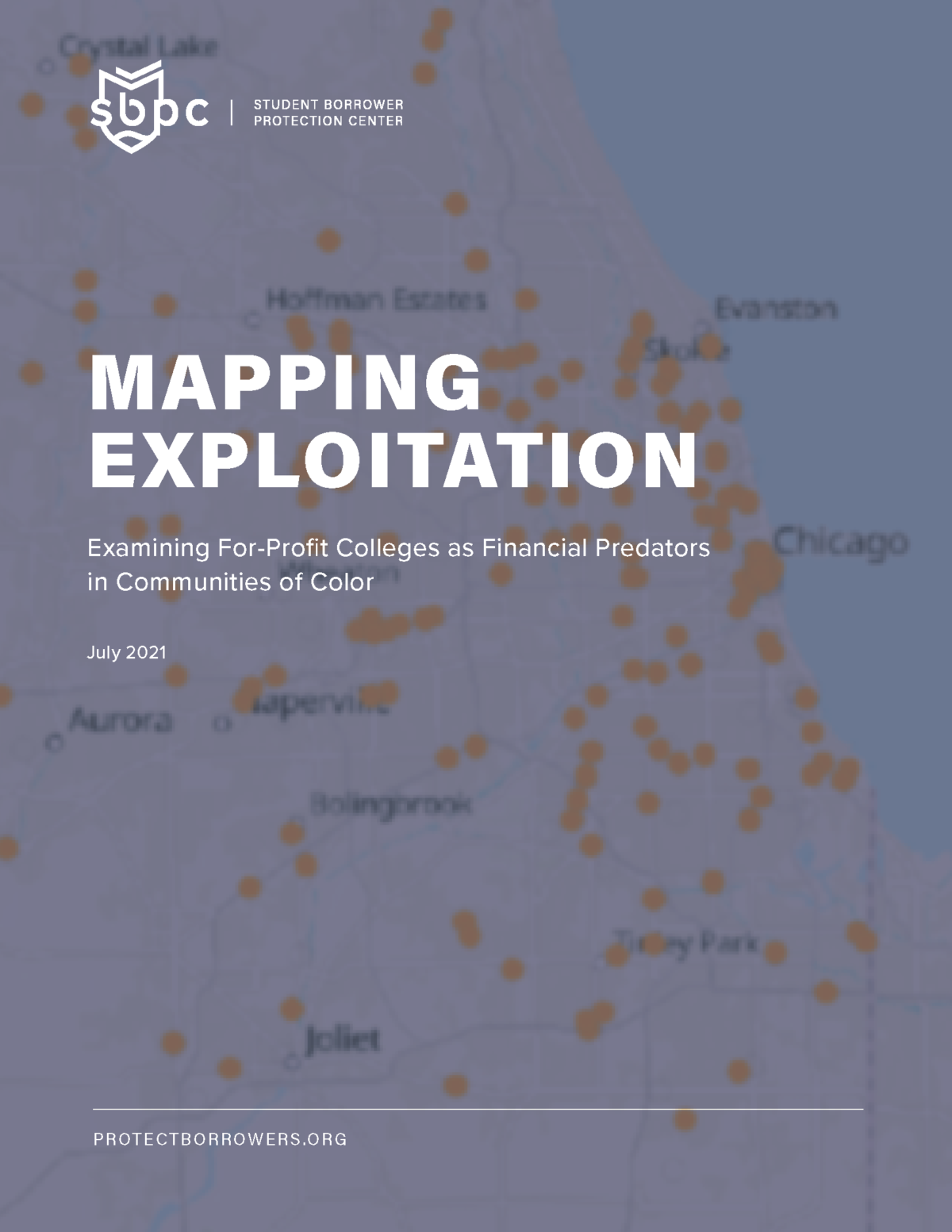
Mapping Exploitation: Examining For-Profits as Financial Predators in Communities of Color
This report examines how predatory for-profit institutions are geographically targeting communities of color in cities in the Upper Midwest and across the country with dubious educational programs and high levels of debt.
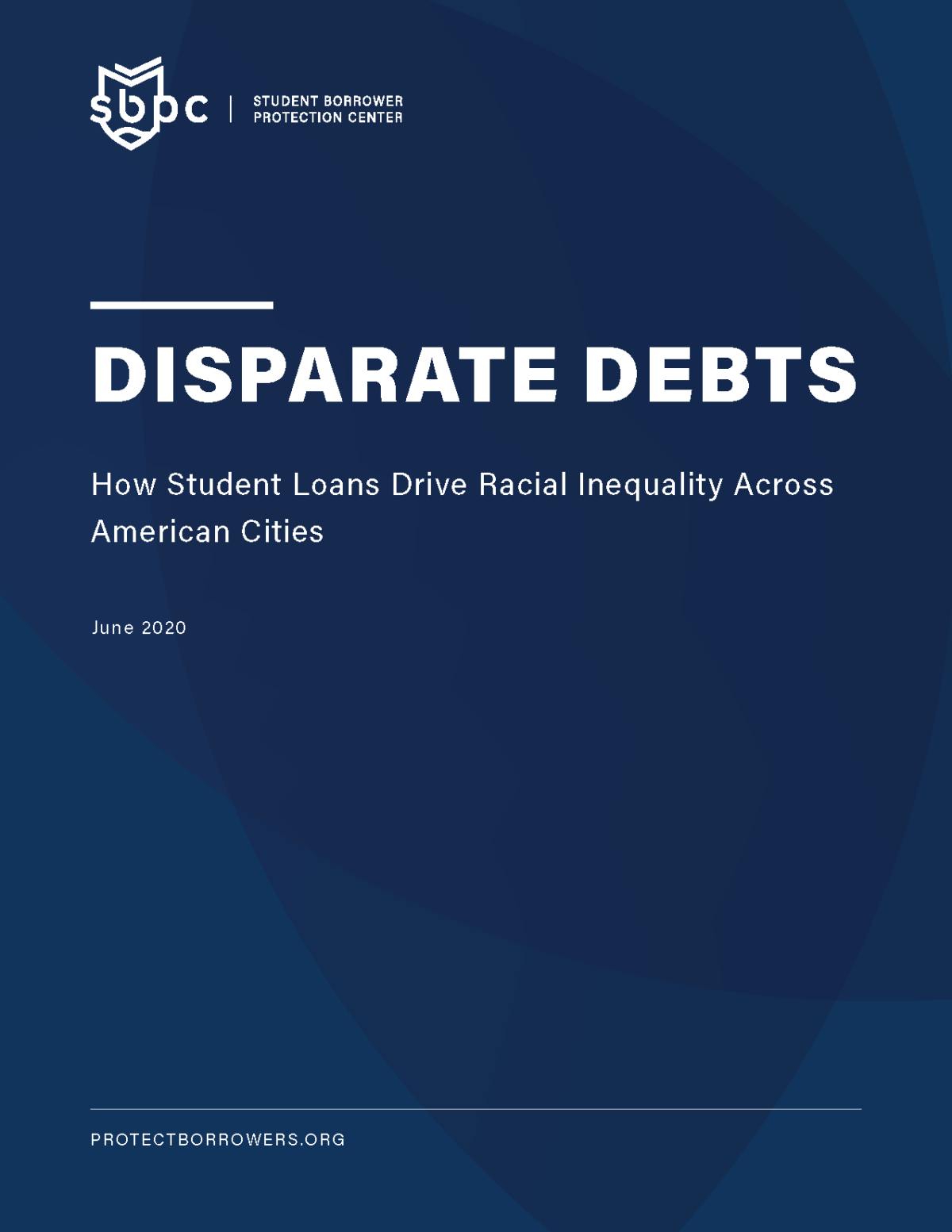
Disparate Debts: How Student Loans Drive Racial Inequality Across American Cities
This report highlights trends and offers new analysis of recent research by economists and city officials exposes alarming racial disparities in student debt burdens and borrower distress across American cities.

How Private Student Loans are Furthering Racial Disparities in the Student Loan Market
Despite industry assurances that the private student loan market is free from borrower distress, a closer examination of outcomes suggests that certain subsets of borrowers disproportionately struggle with private student debt—namely, Black and Latino borrowers.
Combating Discriminatory Practices
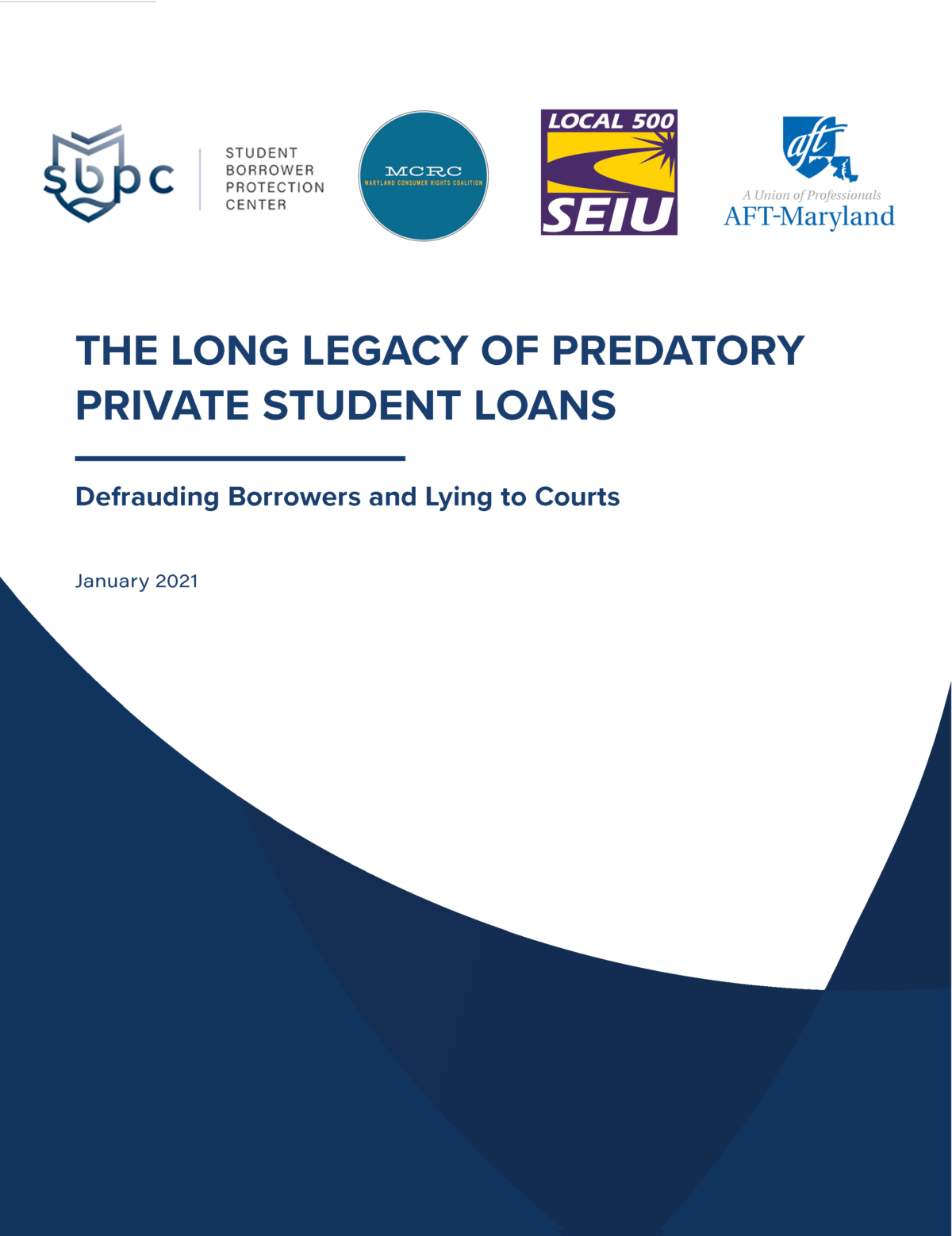
Private Student Loan Collections Report: Maryland Spotlight
With creditors dragging borrowers into court for debt they often do not owe and lacking the documents necessary to back up their claims, the report lays out how these companies are manipulating courts into garnishing borrowers’ wages for illegitimate debt. The analysis also shows that in Maryland, these lawsuits disproportionately target communities of color.
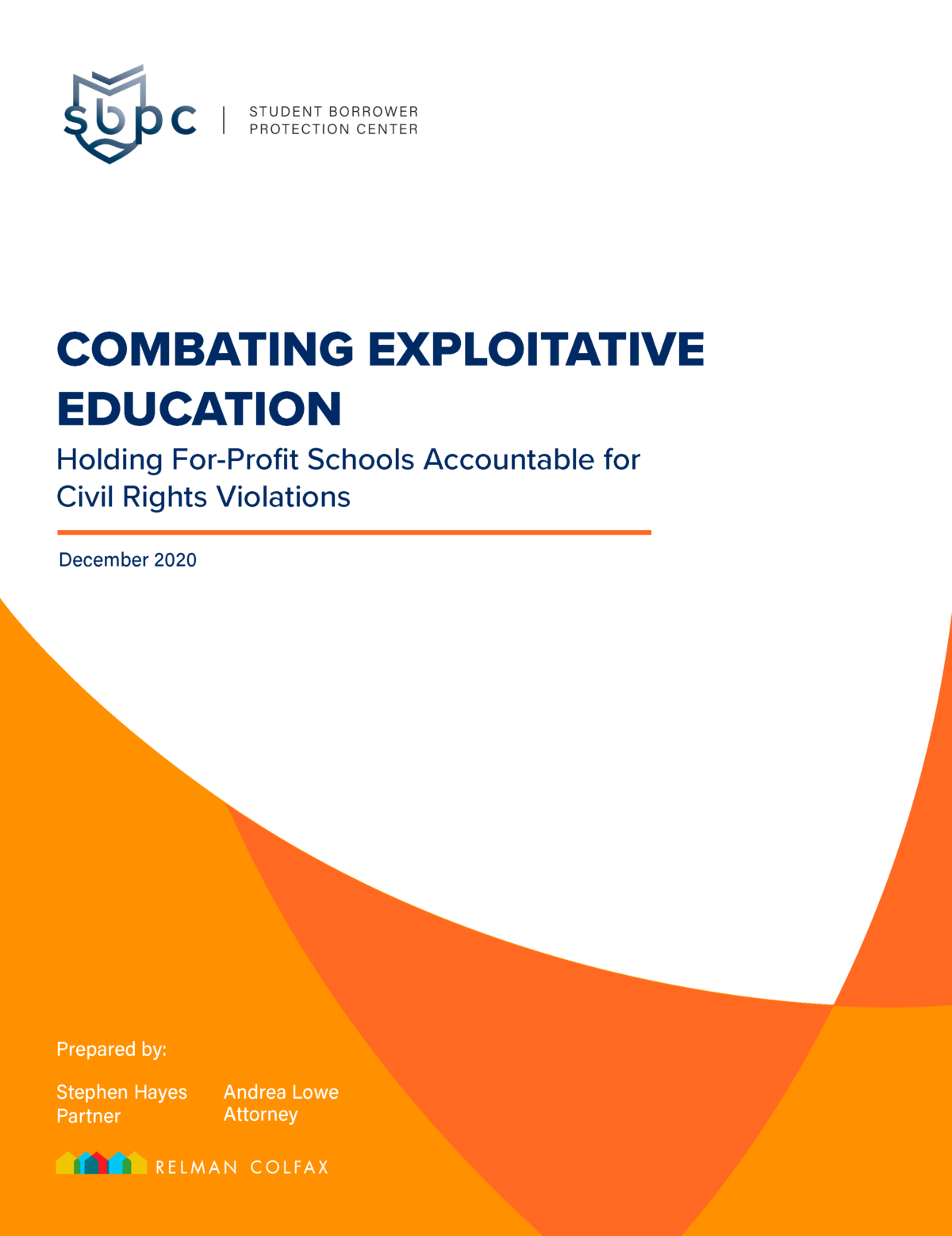
Combating Exploitative Education: Holding For-Profit Schools Accountable for Civil Rights Violations
This report, from Relman Colfax attorneys Stephen Hayes and Andrea Lowe, calls for strengthening and deploying civil rights tools in order to combat predatory practices by for-profit schools.
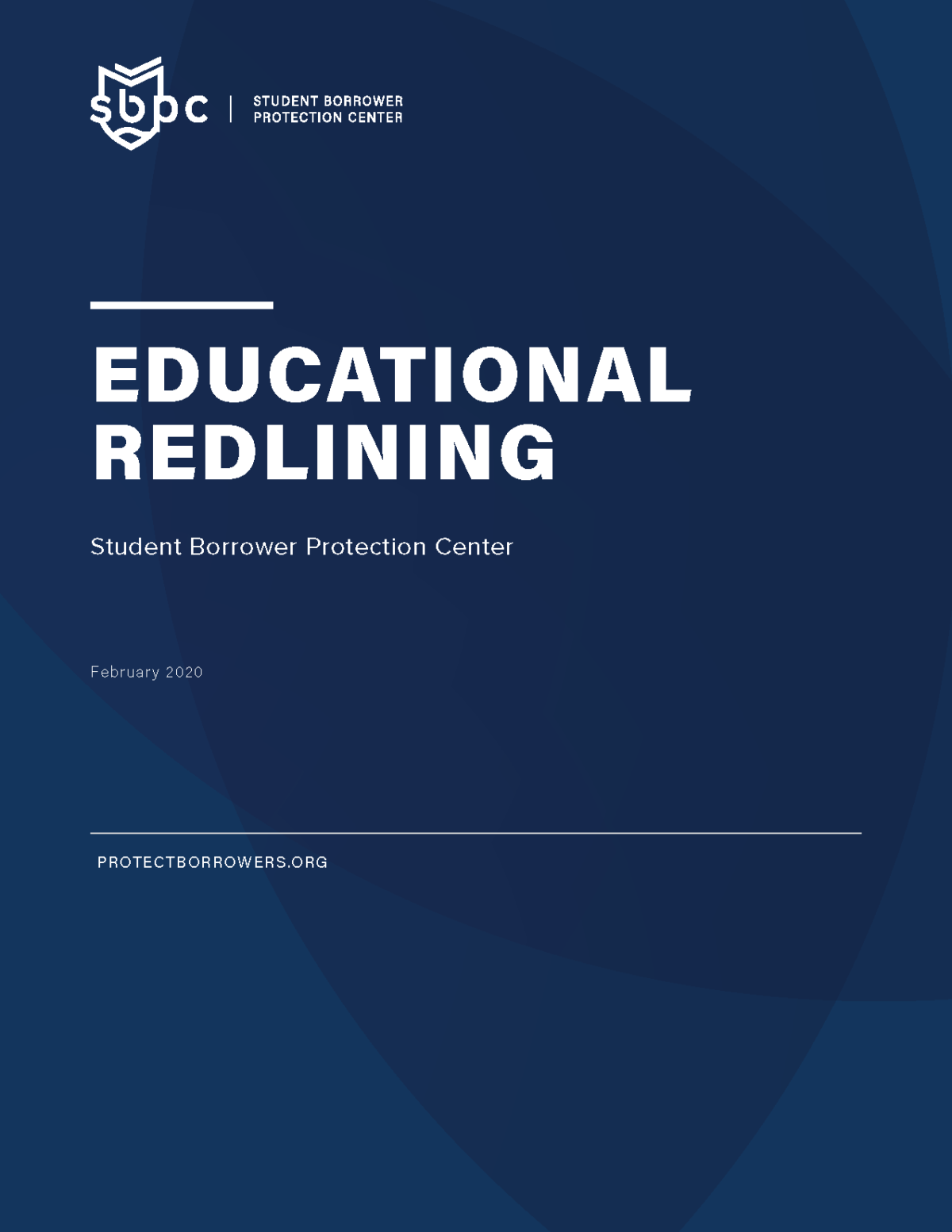
The SBPC’s analysis of fintech and banking products uncovered cases where a prospective borrower may be hit with thousands of dollars in additional credit costs if he or she attended a community college, an Historically Black College or University (HBCU), or an Hispanic-Serving Institution (HSI).
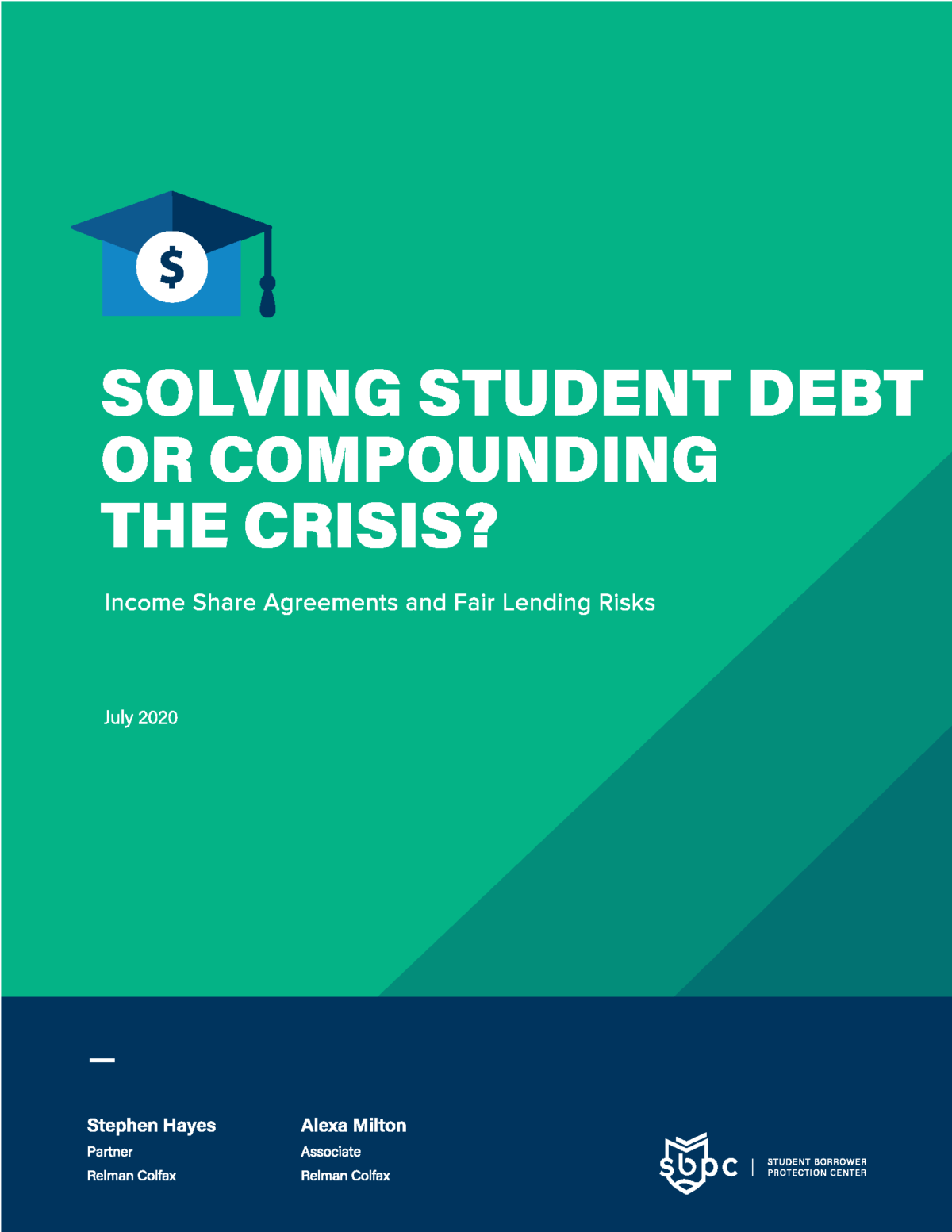
Solving Student Debt or Compounding the Crisis?: Income Share Agreements & Fair Lending Risks
This paper examines how the antidiscrimination framework underpinning federal and state fair lending laws apply to Income Share Agreements, with a particular focus on the Equal Credit Opportunity Act.

The NAACP Legal Defense and Educational Fund, Inc. (LDF) and the SBPC sent a demand letter to financial technology firm Upstart explaining how the firm’s algorithm likely violates the Equal Credit Opportunity Act and the Fair Housing Act.

The NAACP Legal Defense and Educational Fund, Inc. (LDF) and the SBPC announced that they have entered into an agreement with Upstart Network, Inc. under which the parties will collaborate on a review of Upstart’s fair lending outcomes.

As reports of widespread servicing breakdowns leading to significant borrower harm continue to emerge, it is critical that we examine the disparity in loan performance between borrowers of color in comparison to their white peers, the role of student loan servicers in exacerbating these outcomes.

Our latest analysis finds racial and socioeconomic disparities in which borrowers are able to access one of the most critical protections available to all borrowers struggling with federal student loans: income-driven repayment.
Advancing Racial & Economic Justice

Race: Examining Legal Remedies for Disparate Student Debt Outcomes
This paper, written for the Consumer Finance Law Quarterly Report by SBPC Civil Rights Counsel Katherine Welbeck, examines the racial disparities that exist in the student loan market.

SBPC and Civil Rights Groups Urge CFPB to Root Out Discrimination in Student Loan Industry
In a letter to CFPB Director Kathy Kraninger, the SBPC and a wide range of civil rights organizations urge the CFPB to utilize its critical enforcement and supervision tools to protect borrowers from discrimination in the student loan industry.

Testimony of Katherine Welbeck Before the Assembly Select Committee on Student Debt
Testimony of Katherine Welbeck Before the California Assembly Select Committee on Student Debt: Student Debt Impacts on California Neighborhoods

Testimony of Katherine Welbeck Before The Boston City Council
Testimony on the importance of cities taking action to understand how student debt is affecting communities of color and the value of gathering this information to support borrowers.
In the News

Students of color are more likely to take on student debt and disproportionately struggle to pay it back at higher rates than their white counterparts, perpetuating a “vicious cycle” of economic inequality along racial lines, research released Monday suggests.

This scenario is at the heart of a report released Wednesday by the Student Borrower Protection Center examining how the use of education data in underwriting private student loans may exacerbate economic and racial inequality.

Senate Democrats Raise Concerns About Educational Redlining in Student Lending
An emerging practice of using education data to determine creditworthiness is drawing scrutiny on Capitol Hill, where Senate Democrats are questioning whether private student lenders are engaging in educational redlining by raising the price of credit for historically marginalized groups.

Council Mulls Action on Student Debt
City Councilors heard testimony Monday from recent college graduates and higher education activists about the impact of student loan debt on Bostonians — a crisis some characterized as a “second pandemic” that disproportionately affects Black and Latino borrowers.

Another Thing Your ZIP Code Determines: Your Experience With Student Debt
Borrowers living just a few blocks away from one another can have vastly different experiences with their student loans and that wide gulf in outcomes corresponds strongly with the racial makeup of a neighborhood.